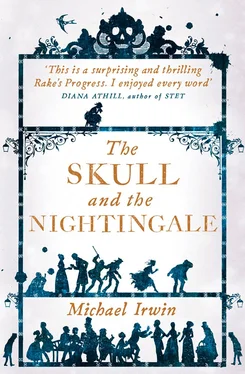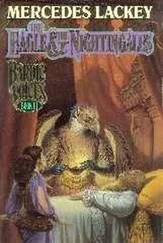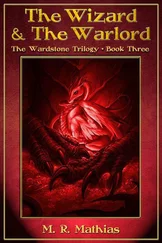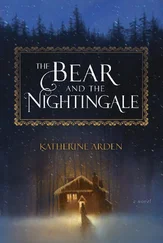MICHAEL IRWIN
The Skull and The Nightingale

Set in England in the early 1760s, this is a chilling and deliciously dark tale of manipulation, sex, and seduction.
When Richard Fenwick, a young man without family or means, returns to London from the Grand Tour, his wealthy godfather, James Gilbert, has an unexpected proposition. Gilbert has led a fastidious life in Worcestershire, but now in his advancing years, he feels the urge to experience, even vicariously, the extremes of human feeling—love and passion, adultery and deceit—along with something much more sinister. He has selected Fenwick to be his proxy, and his ward has no option but to accept.
But Gilbert’s elaborate and manipulative “experiments” into the workings of human behaviour drag Fenwick into a vortex of betrayal and danger where lives are ruined and tragedy is always one small step away. And when Fenwick falls in love with one of Gilbert’s pawns and the stakes rise even higher – is it too late for him to escape the Faustian pact?
Praise for The Skull and The Nightingale :
‘This is a surprising and thrilling Rake’s Progress . I enjoyed every word’
Diana Athill, author of Stet
‘I really admired and enjoyed it. The atmosphere, idiom and characters are great, and the plotting terrific – I had a genuine shock at the end’
Jenny Uglow
‘A splendid novel: immaculately researched, morally fascinating and strangely troubling. It kept surprising me and delighting me in equal measure’
Andrew Taylor, author of The American Boy
‘I devoured this dark, compelling tale of an eighteenth-century Faustus and his Mephostophilis, which troubles the reader with a growing unease from the start and never slackens pace right up to its disturbing conclusion’
Maria McCann, author of The Wilding
After teaching at various universities around the world, Michael Irwin moved to the University of Kent, in Canterbury, where he became Professor of English, specialising in eighteenth and nineteenth-century literature. His published eighteenth century work includes a full-length study of Fielding and essays that take in Defoe, Richardson, Sterne, Smollett, Johnson and Pope.
Table of Contents
Title Page MICHAEL IRWIN The Skull and The Nightingale
About the Book About the Book Set in England in the early 1760s, this is a chilling and deliciously dark tale of manipulation, sex, and seduction. When Richard Fenwick, a young man without family or means, returns to London from the Grand Tour, his wealthy godfather, James Gilbert, has an unexpected proposition. Gilbert has led a fastidious life in Worcestershire, but now in his advancing years, he feels the urge to experience, even vicariously, the extremes of human feeling—love and passion, adultery and deceit—along with something much more sinister. He has selected Fenwick to be his proxy, and his ward has no option but to accept. But Gilbert’s elaborate and manipulative “experiments” into the workings of human behaviour drag Fenwick into a vortex of betrayal and danger where lives are ruined and tragedy is always one small step away. And when Fenwick falls in love with one of Gilbert’s pawns and the stakes rise even higher – is it too late for him to escape the Faustian pact?
Praise for The Skull and The Nightingale Praise for The Skull and The Nightingale : ‘This is a surprising and thrilling Rake’s Progress . I enjoyed every word’ Diana Athill, author of Stet ‘I really admired and enjoyed it. The atmosphere, idiom and characters are great, and the plotting terrific – I had a genuine shock at the end’ Jenny Uglow ‘A splendid novel: immaculately researched, morally fascinating and strangely troubling. It kept surprising me and delighting me in equal measure’ Andrew Taylor, author of The American Boy ‘I devoured this dark, compelling tale of an eighteenth-century Faustus and his Mephostophilis, which troubles the reader with a growing unease from the start and never slackens pace right up to its disturbing conclusion’ Maria McCann, author of The Wilding
About the Author About the Author After teaching at various universities around the world, Michael Irwin moved to the University of Kent, in Canterbury, where he became Professor of English, specialising in eighteenth and nineteenth-century literature. His published eighteenth century work includes a full-length study of Fielding and essays that take in Defoe, Richardson, Sterne, Smollett, Johnson and Pope.
Dedication For Stella
Epigraph There is no difference to be found between the skull of King Philip and that of another man. Samuel Richardson, Clarissa
Chapter 1
Chapter 2
Chapter 3
Chapter 4
Chapter 5
Chapter 6
Chapter 7
Chapter 8
Chapter 9
Chapter 10
Chapter 11
Chapter 12
Chapter 13
Chapter 14
Chapter 15
Chapter 16
Chapter 17
Chapter 18
Chapter 19
Chapter 20
Chapter 21
Chapter 22
Chapter 23
Chapter 24
Chapter 25
Chapter 26
Chapter 27
Chapter 28
Acknowledgements
The Skull and The Nightingale – Reading Group Guide
Copyright
About the Publisher
For Stella
There is no difference to be found between the skull of King Philip and that of another man.
Samuel Richardson, Clarissa
It was a breezy day in March when I returned to London from two years of travel, my age twenty-three, my prospects uncertain. I refreshed myself with coffee at the Roebuck before making my way to Fetter Lane, and the office of my godfather’s agent, Mr Ward. Conceivably, this gentleman might be about to determine the future course of my life in twenty words. I paused at the entrance to his premises to assume unconcern.
He lurched up from behind his desk as ungainly as ever, a big fellow, with a head like a horse, and a gloomy eye.
‘Good afternoon, Mr Ward. I am glad to see you well.’
‘Good afternoon, Mr Fenwick. I have been expecting you.’
When we sat down there was a silence. I looked to him for more, but his large face was expressionless. Apparently it was for me to lead the way.
‘I hope that my godfather is in good health.’
‘I have heard nothing to the contrary.’
Mr Ward had ever been a sparse talker. I tried again.
‘Have you instructions for me?’
‘I have. Your former lodging with Mrs Deacon has been prepared for you. I will send to Mr Gilbert tomorrow to let him know that you have returned.’
‘You have nothing further to tell me?’
‘Not at this time.’
It seemed that the uncertainty was to continue.
‘I shall, of course, be writing to him myself.’
‘I had assumed as much, Mr Fenwick.’
Old long-chops was formal as an undertaker. Determined to strike a spark from him I brightened into affability.
‘Tell me, Mr Ward, do you not find me wonderfully improved by my grand tour?’
He surveyed me grudgingly till a brief gleam lit his glum face.
‘I see you are elegantly dressed, Mr Fenwick. The other improvements may require a little more time to take in.’
It was a slight enough stroke, but it gratified him to the tune of a quarter-smile. I felt sufficiently rewarded: but for my question he might not have tasted such merriment all week.
Читать дальше













